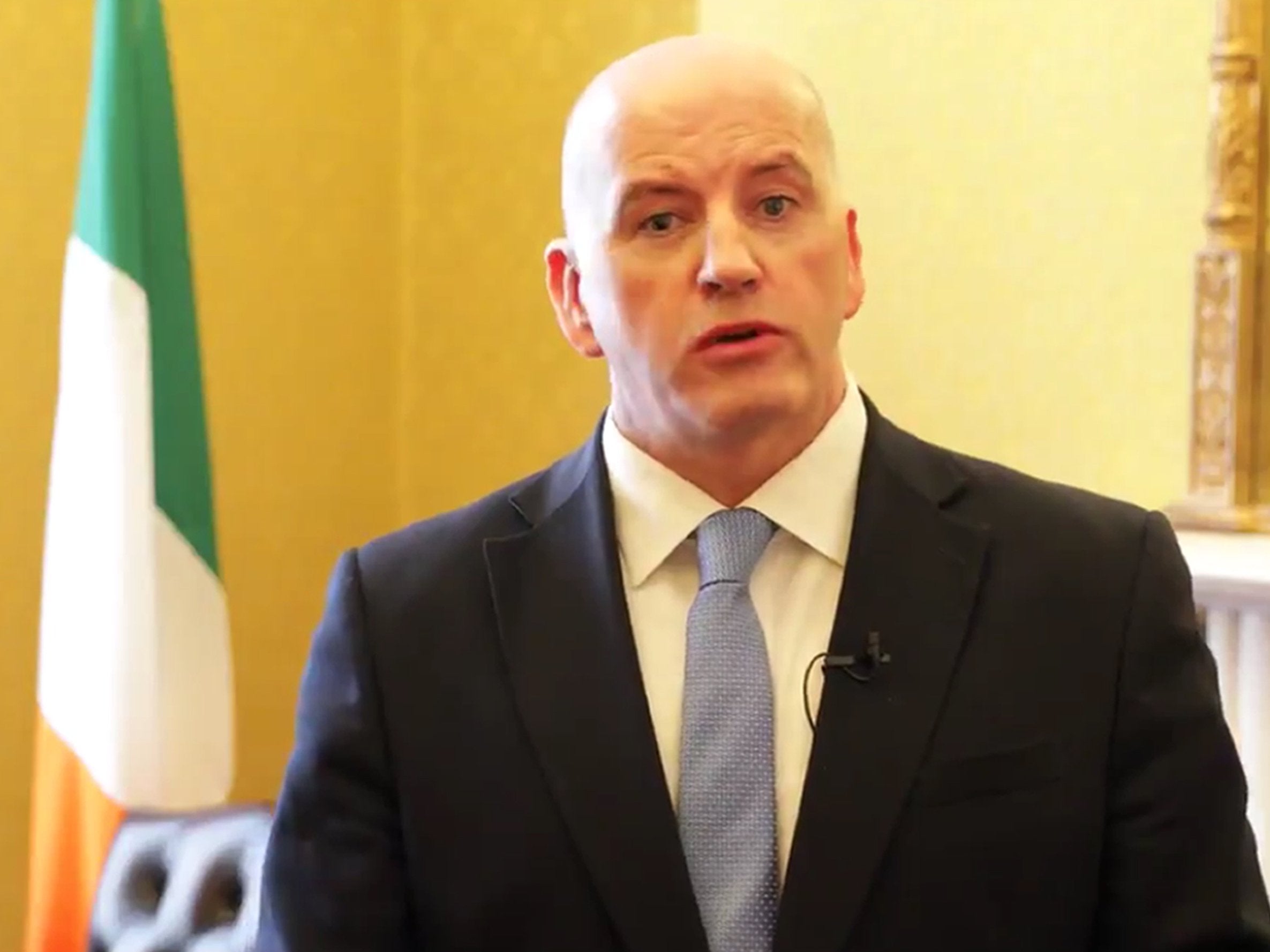Sean Gallagher: Businessman and Dragon's Den star making his second bid for the Irish presidency
Entrepreneur who came second in the 2011 election will now face Michael D Higgins again in this year’s race

Your support helps us to tell the story
From reproductive rights to climate change to Big Tech, The Independent is on the ground when the story is developing. Whether it's investigating the financials of Elon Musk's pro-Trump PAC or producing our latest documentary, 'The A Word', which shines a light on the American women fighting for reproductive rights, we know how important it is to parse out the facts from the messaging.
At such a critical moment in US history, we need reporters on the ground. Your donation allows us to keep sending journalists to speak to both sides of the story.
The Independent is trusted by Americans across the entire political spectrum. And unlike many other quality news outlets, we choose not to lock Americans out of our reporting and analysis with paywalls. We believe quality journalism should be available to everyone, paid for by those who can afford it.
Your support makes all the difference.Sean Gallagher has returned to the Irish political scene and will stand as an independent candidate in the upcoming presidential election.
The businessman, who is also a star of Dragon’s Den in Ireland, ran for the presidency once before in 2011. But after starting out as the favourite, he ended up in second place, losing out to Michael D Higgins.
Who is Sean Gallagher?
Originally from County Cavan, Gallagher founded a home technology business called Smarthomes in 2002, which went on to win various accolades in the business world.
Between 2008 and 2011, he was an investor on the Irish version of Dragon’s Den, which brought him to greater national attention.
He has been a member of Fianna Fáil - a dominant party in Irish politics - initially being part of the youth wing, and later serving on the party’s National Executive.
How did he lose the 2011 presidential election?
Upon entering the race for the presidency in 2011, Gallagher attempted to distance himself from Fianna Fáil, who were experiencing unpopularity at the time, following the economic crash. He contested the election as an independent, with the support of local councils.
Gallagher’s energetic message and his success in business were appealing to the electorate, and he led the polls in the weeks before the election. This all came crashing down just three days before the election, during the final TV debate.
Gallagher was questioned over whether he had collected a cheque from a man for €5,000, for a photograph taken with the Taoiseach at a Fianna Fáil fundraiser - an anecdote which appeared symptomatic of a perceived culture of cronyism within the party.
He stumbled while attempting to put the record straight, and was met with laughter from the audience. There, on live TV, his campaign crashed. A further radio interview the following morning, which attempted to put things straight, made the situation even worse.
Having received poll numbers of around 40% during the campaign, Gallagher ended up with 28.5%, coming second to Michael D Higgins.
Why is Gallagher running for president again?
Described as the worst kept secret in Irish politics, Gallagher announced his second bid for the presidency at the end of August.
In a statement he said, “Ireland is changing and the next president needs to provide a fresh approach at this important juncture for Ireland. We have as a people an opportunity to redefine the role of president in the context of a changing society, while cherishing all that is unique about Ireland.”
Most of Ireland’s biggest parties are supporting President Higgins in the election, including Fine Gael, Fianna Fáil and Labour. Sinn Fein are fielding their MEP Liadh Ní Riada.
This means any aspiring independents have to win the votes of 20 TDs in the Irish parliament, or the support of four county councils. Gallagher has won the backing of the councils of Roscommon, Mayo, Leitrim and Wexford, and was the first independent to secure a nomination.
Curiously, he is not the only investor from Dragon’s Den who has sought a nomination for this contest - both Peter Casey and Gavin Duffy are also running.
Critics have pointed out that while Gallagher claims he wants to serve Ireland and make it a better country, he has not made any effort to run in general, local or European elections in the past seven years, and has been absent from the referendum debates.
What are his chances of winning?
The entry of Gallagher into the mix for this election is a possible game changer. Polling has showed support for him remains high, and he could perhaps even make second place again. It seems that the public have forgiven the mishap of 2011, and perhaps many even feel he was cheated out of victory.
Even with the Sinn Féin candidate considered, he is likely to be the only tangible threat to the re-election of Higgins.
He would represent a very different style of presidency, not just compared with the incumbent, but with all previous holders of the office. He has not held political office before, and styles himself as a self-made entrepreneur, rather than an aspiring statesman. But in the era of Trump, anything is possible.
The Irish presidential election will be held on 26 October, with inauguration day planned for 11 November.
Join our commenting forum
Join thought-provoking conversations, follow other Independent readers and see their replies
Comments